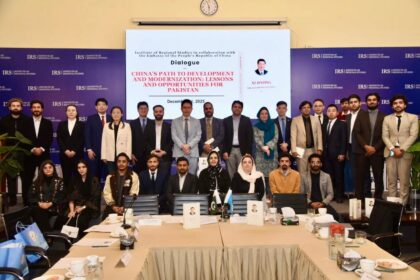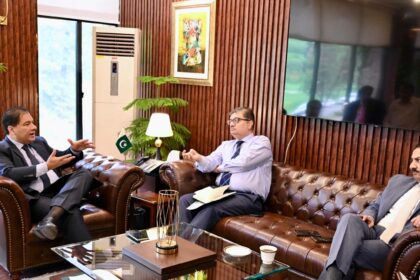The National Commission on the Status of Women, under the leadership of Chairperson Ume-Laila Azhar, convened a high-level roundtable with senior representatives of line ministries, leading academics and subject-matter experts to address critical gaps in Pakistan’s gender data architecture and to chart a collaborative path forward for improving the country’s performance on the World Economic Forum Global Gender Gap indicators.
Stakeholders at the meeting reiterated that Pakistan’s low WEF scores, particularly on political empowerment and economic participation, reflect not only social and structural barriers but also significant limitations in data coverage, standardization and availability. The Pakistan Bureau of Statistics (PBS) briefed participants on the 14 WEF indicators and stressed that insufficient or non-standardized data, along with limited perception survey coverage, undermines an accurate national reflection in global indices.
Participants identified fragmentation of information across departments and institutions as a primary obstacle, with data held in silos and lacking uniform metadata or harmonized classification. Delegates also raised concerns about limited national perception surveys and an overreliance on partial data from private providers for some WEF indicators, as well as outdated or unavailable government datasets that delay or distort international reporting. Low representation of women in elected office and in formal economic activity was emphasised as a major driver of Pakistan’s ranking and a priority for better measurement.
There was broad agreement on the need for an institutionalised, cross-sectoral framework to produce credible, comparable and timely gender statistics. Among the agreed priorities were the development of a Framework for Data Collaboration between NCSW, PBS, relevant line ministries and universities to define roles, data standards and sharing channels, and the creation of a technical working group including PBS, NCSW, the Planning Division and academic leads to draft standard data definitions, domain classifications and a metadata registry aligned with international norms.
Attendees endorsed commissioning prioritized research and targeted surveys led by academia to fill evidence gaps on women’s labour force participation, wage differentials, unpaid care work, political representation, sectoral occupational segregation and digital access. The group also agreed to institutionalise periodic perception and administrative data collection methodologies, ensuring transparency about data sources and comparability across time, and to invest in capacity building for national statistical and research institutions on gender-sensitive data collection, sampling and reporting compatible with WEF and global best practice.
Immediate next steps include the technical working group preparing a draft Framework for Data Collaboration and a roadmap of priority actions for stakeholder review, PBS and partner universities identifying pilot datasets and short-term research projects to demonstrate practical alignment with WEF indicator requirements, and NCSW facilitating follow-up consultations to finalise the framework and secure formal buy-in from line ministries. These steps aim to strengthen the country’s gender data foundations and enable more effective policy design and targeting.
NCSW expressed appreciation for the constructive engagement of PBS, partner ministries, the academic community and experts. Stronger, harmonised gender data is expected not only to improve Pakistan’s international ranking but critically to enable better policies that advance women’s participation, rights and well-being.











